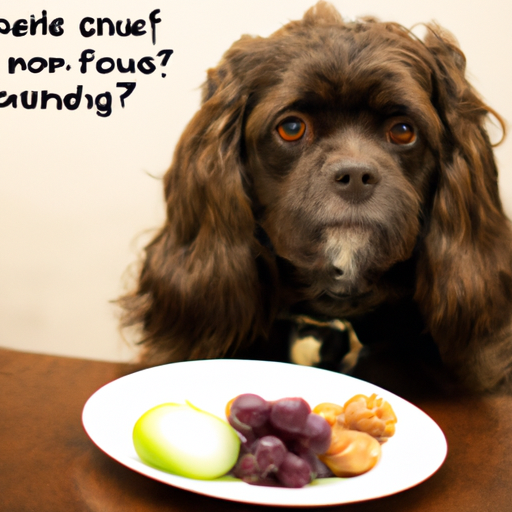Just as humans have foods that are harmful to their health, so do our furry friends. If you’re a caregiver for a dog, it’s essential to know what foods your pet can’t consume to keep them safe and healthy.
Understanding Your Dog’s Dietary Needs
When you’re a caregiver, it’s essential to understand that your dog’s dietary needs are different from your own. Dogs have evolved to have different digestive systems and metabolism rates that make some human foods harmful to them.
What Should Your Dog Eat?
- In the wild, dogs eat a carnivorous diet. Their diet primarily consists of meat, bones, and the contents of their prey’s stomach, which usually includes fruits, vegetables, and grains.
- Domesticated dogs have adapted to eat a more varied diet. This includes a balance of proteins, carbohydrates, and fats, with a small portion of fruits and vegetables.
Foods Your Dog Shouldn’t Eat
There are certain foods that dogs absolutely can’t consume. Here’s a list of the most common foods that are harmful to dogs:
Chocolate and Caffeine
Both chocolate and caffeine contain substances called methylxanthines, which are very harmful to dogs.
- Symptoms: Vomiting, diarrhea, panting, excessive thirst and urination, abnormal heart rhythm, tremors, seizures, and even death.
- Why it’s harmful: Dogs cannot metabolize methylxanthines as effectively as humans can, leading to a buildup that can cause toxic effects.
Grapes and Raisins
The exact substance that makes grapes and raisins toxic to dogs is unknown, but they can cause kidney failure in dogs.
- Symptoms: Vomiting, lethargy, depression, and kidney failure.
- Why it’s harmful: Even small amounts can lead to severe illness or death.
| Harmful Food | Symptoms | Why It’s Harmful |
|---|---|---|
| Chocolate and Caffeine | Vomiting, diarrhea, panting, excessive thirst and urination, abnormal heart rhythm, tremors, seizures, and even death | Dogs can’t metabolize methylxanthines effectively |
| Grapes and Raisins | Vomiting, lethargy, depression, kidney failure | Even small amounts can lead to severe illness or death |
How to Handle a Situation If Your Dog Eats Something Harmful
If you suspect that your dog has eaten something harmful, here’s what you should do:
- Keep calm: Panicking won’t help the situation.
- Identify what they ate: This can help the vet determine the best course of action.
- Contact your vet immediately: They’ll likely ask you about the dog’s size, what they ate, and how much they consumed.
- Follow your vet’s advice: They might suggest inducing vomiting or rushing the dog to the clinic.
The Importance of Regular Vet Check-ups
Even if you’re vigilant, dogs can sometimes get into things they shouldn’t. Regular vet check-ups can help catch any potential health problems before they become serious.
Feeding Your Dog a Balanced Diet
A balanced diet is one of the best ways to keep your dog healthy and prevent them from eating harmful foods. Here are some tips to ensure your dog gets a balanced diet:
- Choose high-quality dog food: Make sure the first ingredient is a high-quality source of protein.
- Feed them the right amount: Overfeeding can lead to obesity.
- Give them plenty of fresh water: Dogs need plenty of fresh water to stay hydrated and help digest their food.
FAQs
What should I do if my dog eats chocolate?
Call your vet immediately. Depending on how much your dog ate, they might suggest inducing vomiting or bringing them in for treatment.
Can my dog eat any human food?
Some human foods are safe for dogs, such as plain cooked chicken, rice, and certain fruits and vegetables. Always research before giving your dog any human food.
What if my dog accidentally eats a grape or raisin?
Even a small amount can be harmful. Contact your vet immediately for advice.
In conclusion, keeping your dog healthy involves knowing what they can and can’t eat. As a caregiver, it’s your responsibility to ensure they’re getting the right nutrients and avoiding harmful foods. It’s always better to be safe than sorry when it comes to your furry friend’s diet.



